Rob Bignell's Blog, page 306
February 21, 2015
I refuse to give up on my writing because I haven’t explored every possible way to revise it.
Since writers  are close to their work – the universe for the story that is in a writer’s head always is larger than the universe for the story that is on paper – they often may not recognize that a passage needs to be revised. Because of this, a troubled paragraph or chapter may go unrecognized by the writer…and if it is recognized, the writer may have no idea how to revise it.
are close to their work – the universe for the story that is in a writer’s head always is larger than the universe for the story that is on paper – they often may not recognize that a passage needs to be revised. Because of this, a troubled paragraph or chapter may go unrecognized by the writer…and if it is recognized, the writer may have no idea how to revise it.
Don’t give up on a passage and decide to let it stand simply because you’re unclear how to help it work better, though. That simply cheats your reader and your story. You wouldn’t give up on your child simply because you’re uncertain how to help her, after all, so why treat your story with any less dignity?
If you’re thinking of quitting on a passage – or even giving up on the entire writing project – you’re simply responding with emotion, specifically frustration and maybe even a little fear or anger. Such an intense reaction arises from self-doubt about your ability to get the story right.
Indeed, a lot of writing is trial and error. Sometimes what at the outset seems like a middling idea actually turns out to be the best cure. Sometimes what initially appears to be a fantastic idea turns out to be the entirely wrong prescription.
The beauty of writing is that there always are a number of ways to solve any given problem. Suppose the result of your main character’s effort to resolve a problem doesn’t deliver the necessary gravitas to help your protagonist grow. Simply have your character take an entirely tact toward resolving the issue, specifically one that leads to the result you desire. There are thousands of different approaches your main character might take. Or you might instead tweak the result. Or you might modify how the character grows through the story.
You may need to outline or pen several drafts of a scene to make it work. Whatever you do, keep at it. The satisfaction you feel upon succeeding will be the worth the effort.
Need an editor? Having your book, business document or academic paper proofread or edited before submitting it can prove invaluable. In an economic climate where you face heavy competition, your writing needs a second eye to give you the edge. Whether you come from a big city like Birmingham, Alabama, or a small town like Buttzville, New Jersey, I can provide that second eye.
<A HREF="http://ws-na.amazon-adsystem.com/widg... Widgets</A>Related articles
 Writing Inspiration: 'The pleasure of each word I write is returned to me multiplied.'
Writing Inspiration: 'The pleasure of each word I write is returned to me multiplied.' Five Great Quotations about Writer's Block
Five Great Quotations about Writer's Block Why you can't get your outline into words
Why you can't get your outline into words Use third - person limited for greater clarity
Use third - person limited for greater clarity 'Writing Affirmations' book hits shelves
'Writing Affirmations' book hits shelves
February 20, 2015
Editing client publishes debut YA novel
An editing 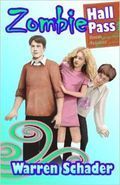 client of mine has published his first young adult novel, “Zombie Hall Pass.” Written for upper elementary and middle school students, Warren Schader’s novel begins with a green mist pouring out of the gym and turning people into zombies. John Hardy – the middle school nerd – joins forces with his close friend Big Mike and the popular girl Melissa, as the unlikely trio use knowledge from video games and comics to solve the mystery of the outbreak. Along the way, they meet unique characters, such as Bobby the photo room “survivor” and the scraggily-haired janitor Mr. Wiggins. And what does Agent Wazowskiburg of B.R.A.T.S. have to do with anything? The novel is available online.
client of mine has published his first young adult novel, “Zombie Hall Pass.” Written for upper elementary and middle school students, Warren Schader’s novel begins with a green mist pouring out of the gym and turning people into zombies. John Hardy – the middle school nerd – joins forces with his close friend Big Mike and the popular girl Melissa, as the unlikely trio use knowledge from video games and comics to solve the mystery of the outbreak. Along the way, they meet unique characters, such as Bobby the photo room “survivor” and the scraggily-haired janitor Mr. Wiggins. And what does Agent Wazowskiburg of B.R.A.T.S. have to do with anything? The novel is available online.
Need an editor? Having your book, business document or academic paper proofread or edited before submitting it can prove invaluable. In an economic climate where you face heavy competition, your writing needs a second eye to give you the edge. Whether you come from a big city like Honolulu, Hawaii, or a small town like Beaver, Oklahoma, I can provide that second eye.
<a href="http://ws-na.amazon-adsystem.com/widg... Widgets</a>Related articles
 Writing inspiration: Read your favorite author
Writing inspiration: Read your favorite author
 Writing inspiration: Model a story
Writing inspiration: Model a story
 How to properly punctuate 'et. al'
How to properly punctuate 'et. al'
February 19, 2015
Writing inspiration: Model a story
Modeling the 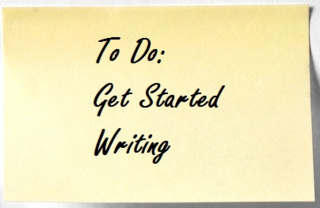 stories (or chapters) of a favorite author forces you to think about how a story is structured and the characters developed, making writing of your own stories easier later on. Select a favorite short story or chapter of only 5-10 pages and follow its format sentence-by-sentence as writing your own.
stories (or chapters) of a favorite author forces you to think about how a story is structured and the characters developed, making writing of your own stories easier later on. Select a favorite short story or chapter of only 5-10 pages and follow its format sentence-by-sentence as writing your own.
Need an editor? Having your book, business document or academic paper proofread or edited before submitting it can prove invaluable. In an economic climate where you face heavy competition, your writing needs a second eye to give you the edge. Whether you come from a big city like New Orleans, Louisiana, or a small town like Searchlight, Nevada, I can provide that second eye.
<A HREF="http://ws-na.amazon-adsystem.com/widg... Widgets</A>Related articles
 Writing Inspiration: Others dream of writing a book - I am living that dream!
Writing Inspiration: Others dream of writing a book - I am living that dream! How to make dialogue sound realistic
How to make dialogue sound realistic Long-time editing client's novelette published
Long-time editing client's novelette published
February 18, 2015
Ought to be illegal: Copyright v. copywrite
If only  some writers would quit violating the definitions of copyright and copywrite!
some writers would quit violating the definitions of copyright and copywrite!
Copyright refers to the exclusive legal right to use artistic material. Its forms can serve as a noun (I own the copyright to my novel.), an adjective (copyrighted material), or verb (You should copyright your manuscript.).
Copywrite isn’t a word. Copywriter and copywriting are, however, and they refer to someone who pens text for a living. They typically are used as nouns (The English major’s first job out of college was as a copywriter or The English major’s first job out of college was in copywriting).
Need an editor? Having your book, business document or academic paper proofread or edited before submitting it can prove invaluable. In an economic climate where you face heavy competition, your writing needs a second eye to give you the edge. Whether you come from a big city like Richmond, Virginia, or a small town like Red Cloud, Nebraska, I can provide that second eye.
Amazon.com Widgets
February 17, 2015
What misfortunes most bother you?
Suffering from 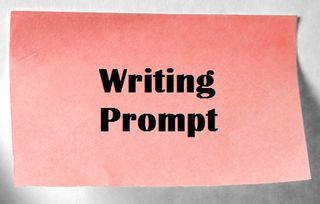 writer’s block or need to add some spunk to your writing? The problem may be that you need to change up your routine. To that end, try this tip: What sufferings or misfortunes of others most concern you? Spend a few minutes listing them, then focus on one, telling how you first came to learn of it and what worries you the most about it. This list can be a good starting point for themes that you might develop a story around.
writer’s block or need to add some spunk to your writing? The problem may be that you need to change up your routine. To that end, try this tip: What sufferings or misfortunes of others most concern you? Spend a few minutes listing them, then focus on one, telling how you first came to learn of it and what worries you the most about it. This list can be a good starting point for themes that you might develop a story around.
Need an editor? Having your book, business document or academic paper proofread or edited before submitting it can prove invaluable. In an economic climate where you face heavy competition, your writing needs a second eye to give you the edge. Whether you come from a big city like Louisville, Kentucky, or a small town like Lodge Pole, Montana, I can provide that second eye.
<A HREF="http://ws-na.amazon-adsystem.com/widg... Widgets</A>Related articles
 Self-publishing tip: Revise by deconstructing
Self-publishing tip: Revise by deconstructing Recent editing client publishes his first novel
Recent editing client publishes his first novel Long-time editing client's novelette published
Long-time editing client's novelette published
February 16, 2015
Editing client releases book on ‘Leading Change’
An editing  client of mine has published his first book, “Leading Change From Within: A Road Map to Help Middle Managers Affect Lasting Change.” Brian Strobel, a professional coach and manager of quality/organizational excellence, examines in “Leading Change” how managers can redirect their company or institution to change and so be successful. To that end, the book focuses on developing middle managers into more effective leaders. “Leading Change” is available online.
client of mine has published his first book, “Leading Change From Within: A Road Map to Help Middle Managers Affect Lasting Change.” Brian Strobel, a professional coach and manager of quality/organizational excellence, examines in “Leading Change” how managers can redirect their company or institution to change and so be successful. To that end, the book focuses on developing middle managers into more effective leaders. “Leading Change” is available online.
Need an editor? Having your book, business document or academic paper proofread or edited before submitting it can prove invaluable. In an economic climate where you face heavy competition, your writing needs a second eye to give you the edge. Whether you come from a big city like Oklahoma City, or a small town like Peculiar, Missouri, I can provide that second eye.
Amazon.com Widgets
February 15, 2015
Five Great Quotations about Autobiography
“I don't 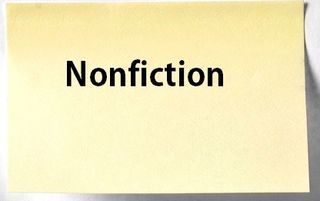 think anyone should write their autobiography until after they're dead.” - Samuel Goldwyn
think anyone should write their autobiography until after they're dead.” - Samuel Goldwyn
“If my clone writes my biography, is it really an autobiography?” - Jarod Kintz
“Autobiography begins with a sense of being alone. It is an orphan form.” - John Berger
“A poet's autobiography is his poetry. Anything else is just a footnote.” - Yevgeny Yevtushenko
“Autobiography is usually honest but it is never truthful.” - Robert A. Heinlein
Need an editor? Having your book, business document or academic paper proofread or edited before submitting it can prove invaluable. In an economic climate where you face heavy competition, your writing needs a second eye to give you the edge. Whether you come from a big city like Memphis, Tennessee, or a small town like Eastabutchie, Mississippi, I can provide that second eye.
&amp;amp;amp;amp;lt;A HREF="http://ws-na.amazon-adsystem.com/widg... Widgets&amp;amp;amp;amp;lt;/A&amp;amp;amp;amp;gt;Related articles
 Five Great Quotations about Characters
Five Great Quotations about Characters Five Great Quotations about Bad Writing
Five Great Quotations about Bad Writing Self-publishing tip: Revise by deconstructing
Self-publishing tip: Revise by deconstructing
February 14, 2015
Your best writing teacher is a passage that challenged you the most when writing it.
No medical 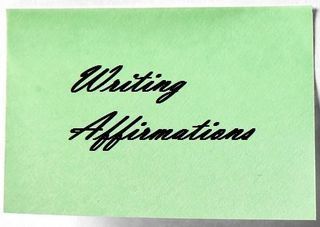 student becomes a doctor simply by reading a textbook. Neither does one become a great painter simply by gazing at the works of great masters on museum walls. Instead, to become qualified to practice her profession, the doctor makes rounds as a resident while the painter actually works with oils and canvas then shows at a gallery.
student becomes a doctor simply by reading a textbook. Neither does one become a great painter simply by gazing at the works of great masters on museum walls. Instead, to become qualified to practice her profession, the doctor makes rounds as a resident while the painter actually works with oils and canvas then shows at a gallery.
Likewise, no writer ever became successful simply by reading about a literary device in a writing guidebook. This is not to say that such books aren’t useful. They are. Many such books inspire students to read great literature and introduce a number of writing methods to would-be authors.
A far better teacher is actually writing. When that occurs, the writer suddenly becomes aware of the importance of diction, seeks ways to achieve a certain tone, and experiments with differing styles all to achieve a desired effect.
Just as anyone can teach a student the basics, a truly great teacher encourages her pupils to excel, to strive for more than the mediocre. Good teachers challenge their students…and their students rise to the call. A difficult to write passage is akin to that good teacher. Such a passage forces a writer to explore new ways of stringing together words, of experimenting with new plot devices, of examining how other writers did it and then modeling their success.
If you really want to grow as a writer, don’t opt for the easy solution by using cliché devices and repeating plots, character archetypes, and unimaginative themes already done ad nauseam in hack books and on television. Instead, accept the challenge of finding a way to take your writing beyond the norm, even if that means going through several revisions.
The result will be a writer who actually can practice his craft with great skill rather than remaining a wannabe who reads about how others do it.
Need an editor? Having your book, business document or academic paper proofread or edited before submitting it can prove invaluable. In an economic climate where you face heavy competition, your writing needs a second eye to give you the edge. Whether you come from a big city like Jacksonville, Florida, or a small town like Dinkytown, Minnesota, I can provide that second eye.
<a href="http://ws-na.amazon-adsystem.com/widg... Widgets</a>Related articles
 Five Great Pieces of Advice to Aspiring Writers
Five Great Pieces of Advice to Aspiring Writers Think about concerns over marketing book
Think about concerns over marketing book 'Writing Affirmations' book hits shelves
'Writing Affirmations' book hits shelves
February 13, 2015
Stuff your book in a Little Free Library
If you’ve  written multiple novels, and especially if they’re a series, you may want to consider sticking your book in a Little Free Library.
written multiple novels, and especially if they’re a series, you may want to consider sticking your book in a Little Free Library.
A Little Free Library is a small container, usually kept at the edge of a homeowner’s lawn next to the sidewalk, where free books are placed for local community members to read. Neighbors can place there a book they’ve read but no longer want to keep and then take one they want to read. They are variously known as book trading posts, community book exchanges, Noox (Neighbourhood bOOk eXchange), and pop-up libraries and can be found in all 50 states.
Though you’re giving away a book, hopefully some reader will enjoy it enough to purchase copies of your other books. Or perhaps several neighbors will read the book, discuss it, and each buy other novels you’ve written. Maybe they’ll even buy a copy of your giveaway to keep on their own shelf.
Because of this, always make sure the book you give away has a list of all of your titles as well as URLs to where they can be purchased.
Need an editor? Having your book, business document or academic paper proofread or edited before submitting it can prove invaluable. In an economic climate where you face heavy competition, your writing needs a second eye to give you the edge. Whether you come from a big city like Milwaukee, Wisconsin, or a small town like Dry Prong, Louisiana, I can provide that second eye.
<A HREF="http://ws-na.amazon-adsystem.com/widg... Widgets</A>Related articles
 What is a 'cookie cutter' story?
What is a 'cookie cutter' story? Six great topics for authors to tweet about
Six great topics for authors to tweet about Writing Inspiration: Replace your old books with the books you've always wanted to write
Writing Inspiration: Replace your old books with the books you've always wanted to write
February 12, 2015
Writing inspiration: Read your favorite author
Read a short 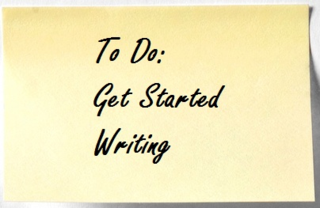 story or chapter of a book by your favorite author. Make a list of at least five things that you like most about the author’s writing. Try to incorporate those techniques or styles into your writing.
story or chapter of a book by your favorite author. Make a list of at least five things that you like most about the author’s writing. Try to incorporate those techniques or styles into your writing.
Need an editor? Having your book, business document or academic paper proofread or edited before submitting it can prove invaluable. In an economic climate where you face heavy competition, your writing needs a second eye to give you the edge. Whether you come from a big city like Providence, Rhode Island, or a small town like Gay Head, Massachusetts, I can provide that second eye.
<A HREF="http://ws-na.amazon-adsystem.com/widg... Widgets</A>Related articles
 Five Great Quotations for Aspiring Authors
Five Great Quotations for Aspiring Authors How to make dialogue sound realistic
How to make dialogue sound realistic Writing Inspiration: Others dream of writing a book - I am living that dream!
Writing Inspiration: Others dream of writing a book - I am living that dream!



